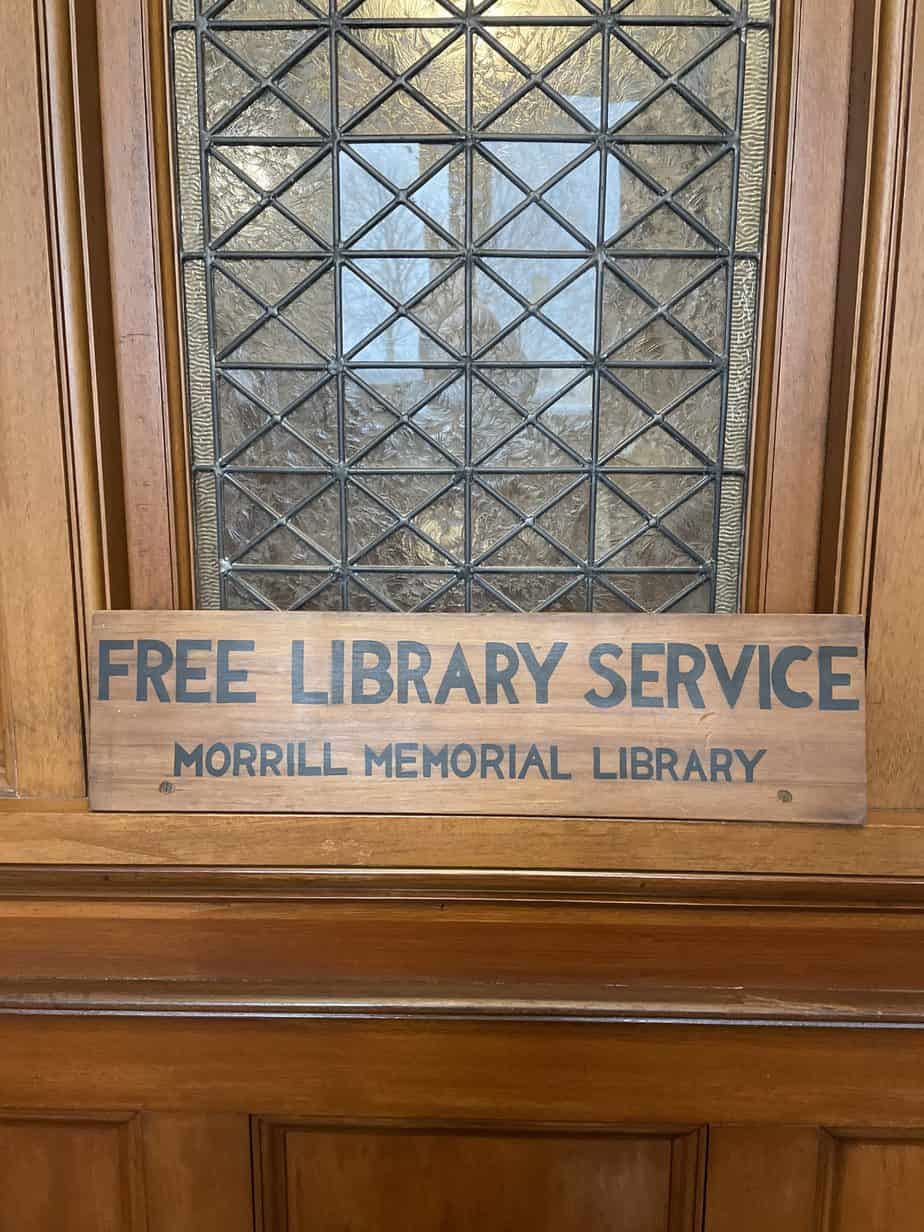 As a librarian, I sing the praises of the public library wherever I go, using any opportunity to inform the populace about the treasure trove available to them. Home improvement project? Did you know we lend out a wallpaper steamer and a pressure washer? Inflation got you down? Well, are you taking advantage of the free audiobook, e-book and streaming video services we offer, along with borrowing books and movies instead of buying them? It seems like folks would have to be crazy not to take advantage of such a no-strings-attached benefit, but from those who opt not to, I hear a few reasons why.
As a librarian, I sing the praises of the public library wherever I go, using any opportunity to inform the populace about the treasure trove available to them. Home improvement project? Did you know we lend out a wallpaper steamer and a pressure washer? Inflation got you down? Well, are you taking advantage of the free audiobook, e-book and streaming video services we offer, along with borrowing books and movies instead of buying them? It seems like folks would have to be crazy not to take advantage of such a no-strings-attached benefit, but from those who opt not to, I hear a few reasons why.
Someone never returned a library book they borrowed in college back in 1995. Another harbors traumatic memories of the scolding librarian from their childhood, and fears “getting in trouble.” Many freely admit their own shortcomings – procrastination, forgetfulness, disorganization – and don’t trust themselves to return material on time. These law-abiding citizens do not want the “library police” coming after them, or to end up in debtors’ prison after incurring a crippling amount of overdue fines.
Well, we have good news for the library-phobic, and welcome them back with open arms, as the Morrill Memorial Library has joined a wave of others nationwide in going fine-free. Last month the library’s Board of Trustees unanimously voted to approve a new borrowing policy that eliminates most overdue fines. This applies to our books, movies, puzzles and other “things,” and essentially everything else that we lend from our own and other Minuteman network libraries – everything except for interlibrary-loan materials we request from farther afield sources, outside of Minuteman, as we are bound to other libraries’ policies for those.
When considering such a change, the biggest question becomes how to hold patrons responsible without the threat of fines. How can we trust people to bring materials back? It turns out, most people borrow things because they don’t want to own them – they don’t need a book or movie permanently but just want to read or view it and give it back after. They happily borrow our projector screen or paper shredder, but only need it one time, not cluttering their closet. Of course, if someone wants to keep a borrowed item, we’re not that generous; after any opportunities for renewal have passed, we ask for it back and send a bill for replacement of an item if it is not returned. Once returned though, all is forgiven – we eliminate the bill and do not charge penalties. If someone loses or destroys an item, they owe us the money for it – seems fair, right?
We have other ways to hold people accountable. Think of it as the original Netflix model: Netflix mailed you DVDs and you could keep them as long as you wanted… but couldn’t get new ones until you returned them. If a library user holds onto something for so long that no more renewals are allowed, the item is considered potentially lost and the system generates a bill for the replacement cost. When bills reach a certain level, the responsible party’s account automatically goes on hold. This prevents them from putting requests on additional items or from accessing our online databases and e-book, audiobook and streaming services, until the situation is resolved. Return the materials, or pay for lost items, and they’re back in business.
We at the MML do not have to reinvent the wheel. Others have eliminated fines on a trial basis and assessed the outcomes of the decision. Across the board, libraries discover that return rates increase! People no longer fear the library or avoid it to postpone reckoning with paying their fines. Keep in mind, fines we charged historically did not rake in big bucks – fines for many items accrued at only $0.05 per day, often maxing out at $2.00. Overdue fines never did keep the library afloat. In fact at the MML as with most other public libraries, less than one percent of our revenue generally came from fines and fees. Meanwhile, our staff spent a fair amount of time and effort collecting coins and adjusting patrons’ online accounts handling these penalties; the labor cost could very well exceed the income of the fines. On the other hand, as a passport application acceptance agency, the Department of State requires the MML to charge a $35.00 agency fee for each application we process (the same goes for the post office). Our convenient passport service brings in far more revenue than overdue fines ever did, for us to put back into building our collections and supporting programming.
It’s hard to make lending policies one size fits all. I happen to read painfully slowly – it may well take me longer than the three-week loan period to finish a book. Clearly it takes longer to read War and Peace than The Very Hungry Caterpillar. We want community members to borrow what they need, and bring it back when they are done, trusting them not to abuse this privilege. An adult may borrow one book at a time, while parents routinely borrow 20 picture books at a time for their children. Fine schemes impact people differently, and we aim for equity of access. Anyone struggling financially should embrace the services the library provides free of charge, and the last thing we want to do is set up financial barriers for using our ostensibly free resources.
Pre-pandemic, the trend of public libraries going fine-free began and those ahead of the curve reported back to others on the success of their forgiveness programs. In Norwood, the former Library Director and Board of Trustees discussed the idea as other Minuteman network libraries moved in this direction, and anticipated going the same way. COVID-19 became a catalyst that sped up this phenomenon nationwide. Amid the confusion and constant changes of library hours, entrance allowances, and return policies, libraries suspended overdue fines, and when the world began to reopen many opted not to resume with them. This included the New York Public Library, the Boston Public Library, and over a dozen of our fellow Minuteman libraries. We are thrilled to join them and to welcome all Norwood residents back with open arms.
Lydia Sampson is the Assistant Director at the Morrill Memorial Library in Norwood, MA. Look for her article in the January 20, 2022 issue of the Transcript and Bulletin.



